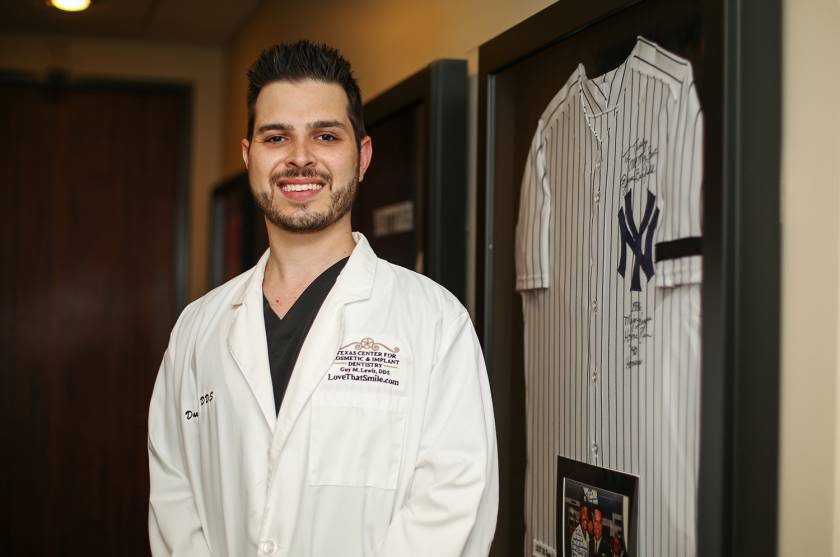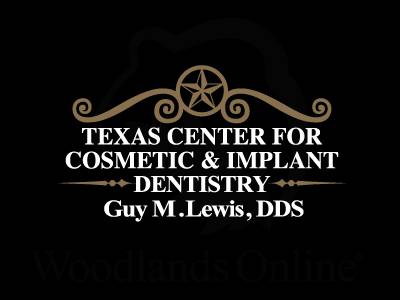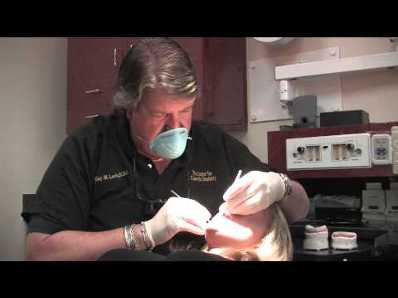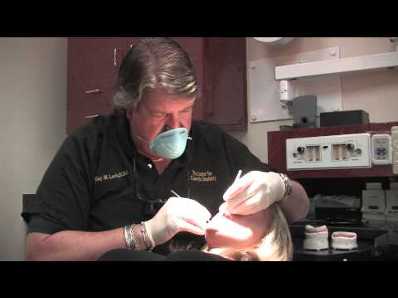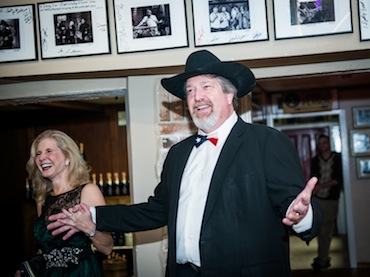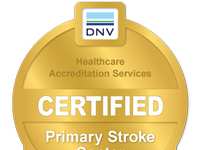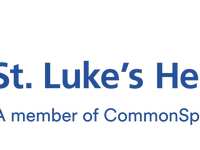- Sections :
- Crime & Public Safety
- Restaurants & Food
- Sports
- More
Categories
Premier Woodlands dentist has five tips to protect yourself from oral cancer
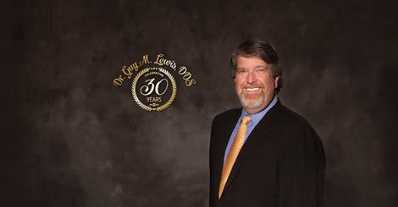
THE WOODLANDS, Texas– Dr. Guy Lewis, celebrating 30 years as founder of the Texas Center for Cosmetic & Implant Dentistry in The Woodlands, has some surprising news concerning how your weekend barbecue can affect your chances of getting oral cancer.
Dr. Guy Lewis discusses how to keep your BBQ cancer-free
“It has long been held as a myth that burnt meat can cause cancer. However, evidence strongly supports this myth as truth,” Lewis said. “When you’re barbecuing, you should keep in mind that something as simple as a burnt hamburger patty can produce cancer-causing chemicals.”
Lewis warns that the risk comes from pork, chicken, and fish as well as beef. Meats cooked – and overcooked – at extreme temperatures produce polycyclic aromatic hydrocarbons (PAHs) and heterocyclic amines (HCAs). PAHs are found in fossil fuels such as oil and coal, and in tar deposits, and have been identified as carcinogenic. HCAs form when amino acids react at high cooking temperatures. Researchers have identified 17 different HCAs resulting from the cooking of muscle meats – such as beef, pork, fowl and fish – that may pose human cancer risk.
Dr. Lewis has five easy tips to help you keep your grilled meals safe and as carcinogen-free as possible:
1. Watch the time and the temperature. According to the National Cancer Institute, direct exposure to temperatures above 300 degrees is a main contributor to PAHs and HCAs in meat. People who eat medium-well or well-done beef are more than three times as likely to suffer stomach cancer as those who ate rare or medium-rare beef. Lewis suggests microwaving your meat for one to two minutes prior to grilling to reduce the exposure time, and to keep an eye on the grill cooking temperature.
2. Know the marvels of marinating. Research has shown that an olive oil, lemon juice, and garlic marinade cut HCA levels in chicken by as much as 90%. For extra zest, cooking your meats with garlic, rosemary, fruit pulp and spices like chili powder and paprika may lower HCA production by up to 70%, according to a review in the Natural Medicine Journal. Six hours of marinating in beer or red wine cut levels of two types of HCA in beef steak by up to 90% compared with unmarinated steak.
3. Flip away. Much like one bad apple doesn’t ruin the whole bunch, one burnt spot on your ribeye won’t turn the whole steak into a cancer risk. It is the charred spots that are the literal and figurative hot spots for carcinogenic chemicals. Lewis suggests that you constantly flip your meats to limit surface exposure. And, should a piece get too crispy for your comfort, just cut it out.
4. Check your oil. Wanting to deep-fry some chicken for your barbecue? Dr. Lewis warns that many common cooking oils mutate at high temperatures. Corn oil, vegetable oil, even the listed “healthier” ones on the shelves such as olive oil, soybean oil and coconut oil, can at high heat develop compounds that have been found to have carcinogenic properties. When in doubt, peanut oil seems to be the most resistant to this high-temperature mutation. Also, warns Dr. Lewis, it’s more than the oil itself that’s a risk; it’s also the fumes. According to studies, fumes from cooking oils were found to be genotoxic. However, concentrations of PAHs were significantly decreased – on average 75% – when a fume extractor was working. When working with oils, Dr. Lewis recommends placing table-edged fume extractors near the cooking pots.
5. Remember, you are what you eat. As mentioned above, muscle meats like chicken and beef are most at risk of turning carcinogenic at high temperatures. However, other sources of protein such as milk, eggs, tofu and organ meats such as liver have very little or no HCA content naturally or when cooked. The American Institute for Cancer Research states that strong evidence exists that a diet filled with a variety of plant foods such as vegetables, fruits, whole grains and beans helps lower the risk for many cancers, and it recommends that you fill at least two-thirds of your plate with these foods.
Dr. Lewis has one more tip to lessen your risk for oral cancer: early detection. At his Texas Center for Cosmetic & Implant Dentistry, he has two machines that provide early detection screening for all types of oral cancer. The American Cancer Society reports that approximately 39,500 people will get some type of oral cancer this year, from which an estimated 7,500 will die and with a total 5-year survival rate of only about 50 percent. Dr. Lewis knows that early detection is the key to increasing the survival rate, and recommends patients avail themselves of these screenings at his office, as they are covered by most health insurance plans, and are a non-invasive procedure that take a matter of minutes.
The Texas Center for Cosmetic & Implant Dentistry is located in the Woodlands, Texas. For more information on the oral cancer screenings the center provides or to make an appointment, call 281-602-3920 or visit www.lovethatsmile.com.
Comments •

